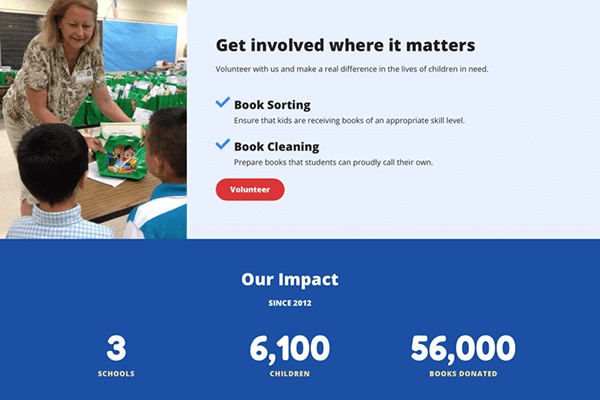Using the Accessibility Skills Hiring Toolkit to Build Capacity
2020 is the year the web got real, and digital accessibility capacity is needed now, more than ever. With the COVID-19 pandemic, many of us are shifting our lives from…
Upcoming Webinar: April 22 at 12 PM ET. Client-Driven Success: Unpacking Cvent’s Accessibility JourneyRegister Now

2020 is the year the web got real, and digital accessibility capacity is needed now, more than ever. With the COVID-19 pandemic, many of us are shifting our lives from…
May 12, 2020 | Accessibility Strategy, Technical

Knowbility’s Accessible Internet Rally, or AIR, provides the perfect framework for learning what matters in digital accessibility. Accessibility is the practice of providing features that work for people with disabilities….
February 13, 2020 | Technical
As accessibility consultants we regularly encounter ways that technology prevents people with disabilities from participating successfully, in employment, education, and in everyday life. We are delivering a new workshop on what we call “People First Design,” exploring practical ways to improve digital product and services by focusing UX efforts on people with disabilities.
January 16, 2017 | Technical
TPGi and our peers at Teach Access are very excited to announce the Teach Access Tutorial. This tutorial provides a set of hands-on coding exercises and reference material for accessibility best…
July 20, 2016 | Technical
Organizations that deliver online learning must be strategic and holistic in their accessibility approach, ensuring all necessary structures are in place to support accessible and equitable experiences for learners with disabilities. Responsibility for accessibility must be distributed appropriately across all stakeholder groups. By adopting stewardship activities common in physical campuses, a more strategic approach can be applied to the digital campus. Masterplanning the digital campus means addressing near-term activities with a long view—one that takes into account the underlying infrastructure as well as the surface-level structures where people engage more directly in the learning process. This paper presents foundational activities around policy, process, programs, and practice that are necessary to support the creation of a sustainable, accessible online learning environment.
April 14, 2016 | Accessibility Strategy, Technical
Can we rethink accessibility in more effective and sustainable terms—ones that generate a positive return on investment for providers and a pleasurable user experience for everyone?
January 5, 2016 | Accessibility Strategy, Technical
Improving web accessibility can be challenging, particularly for organizations with large, complex digital estates and internal organizational structures. Efforts can be guided by technical standards, but there are shortcomings with treating accessibility for people with disabilities as a compliance effort. Using the Americans with Disabilities Act Standards for Accessible Design as an approach to remediation of accessibility barriers in the built environment as a parallel, we explore an approach to improving digital accessibility that places value on conscious, pragmatic decision-making and sharing of evidence of progress.
May 22, 2015 | Accessibility Strategy, Technical
At TPGi we are committed to advancing accessibility, and we look for ways to drive innovation and change in the way accessibility is approached and implemented. Laws and policies are…
April 9, 2014 | Technical
Attention to accessibility usually comes into play in the later phases of product development. Accessibility audits are typically performed during quality assurance and user acceptance testing phases. Remediation for any issues identified in the audit usually happens in code. However, the best fix for many complex accessibility issues may be to revisit the overall design approach; yet reworking designs at this late phase has a significant impact on timelines and processes. Any recommendation involving alternative designs is therefore usually unwelcome. Instead, the issues remain unresolved, or are resolved in a fashion that achieves technical accessibility but offers a compromised user experience.
The best approach to accessible user experience is to integrate accessibility into the design and development process. When accessibility is part of the practice of every member of the product development team, and when accessible features and functionality are built into design, content, and code, the result is a product that is accessible and enjoyable for everyone.
March 31, 2014 | Technical, User Experience (UX)
TPGi is co-sponsor with Rosenfeld Media, UIE, and O’Reilly of a new podcast focused on advancing accessibility awareness and skills in the user experience profession: A Podcast for Everyone: Practical conversations…
March 6, 2014 | Technical, User Experience (UX)
Here at TPGi we do a great deal of work helping organizations remediate accessibility issues with their web sites and web applications. It’s very satisfying work — particularly when we…
November 7, 2013 | Technical, User Experience (UX)